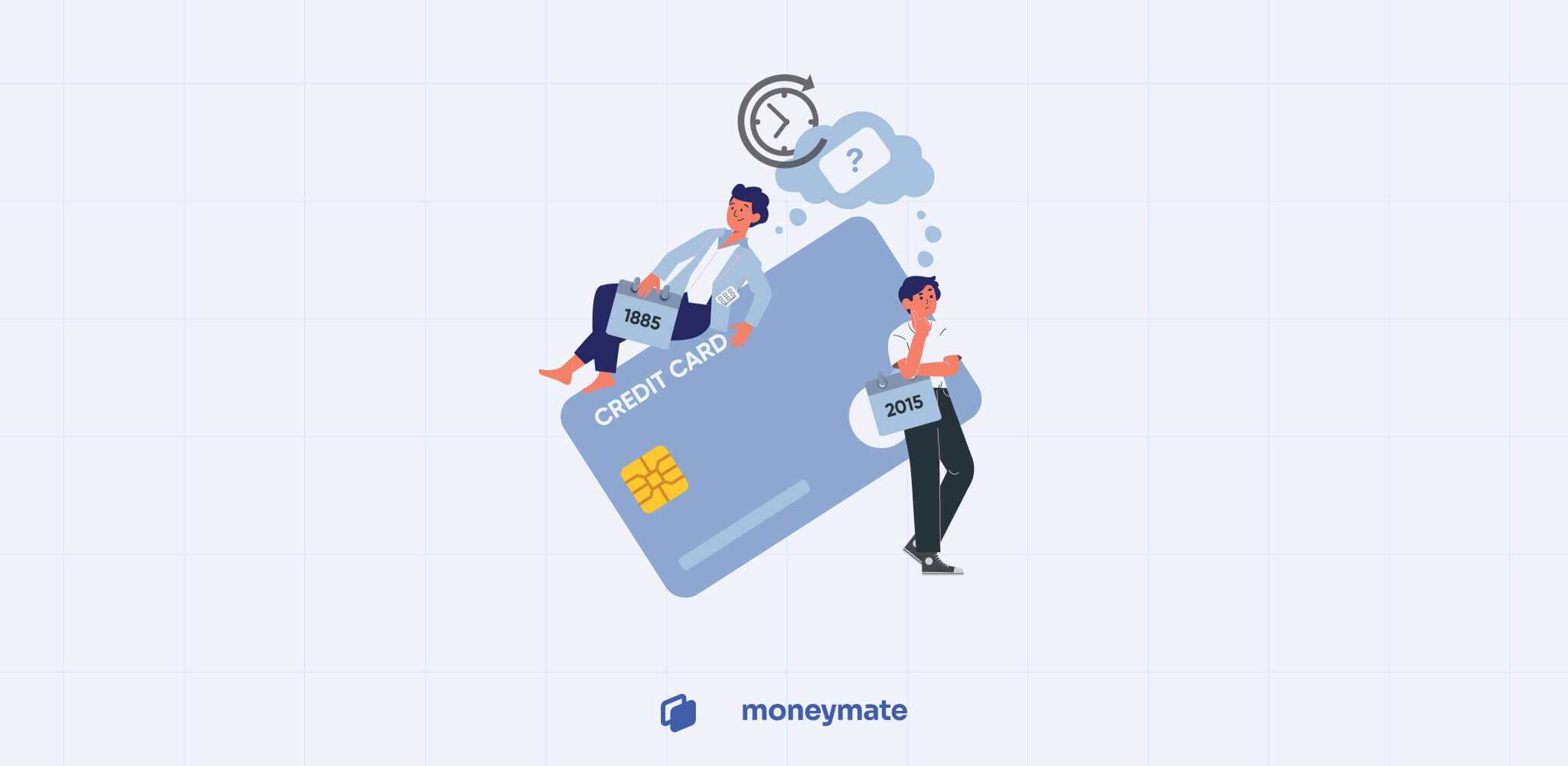For the financially savvy, credit cards can be a powerful tool for savings. Learn how these cards first came about, how they work, and how to decide on the right card for you.
Table of Contents
- What’s a credit card?
- A short history
- Pros and cons of credit cards
- How to compare credit cards in Singapore
- 4 misconceptions about credit cards
What’s a Credit Card?
A credit card is a small plastic card that you can use to buy things, even if you don’t have cash at the moment. When you use a credit card, you’re borrowing money from the provider that issued the card. You’ll have to pay at least part of this back at the end of the month.
Because it’s a type of short-term loan, credit cards are a good way to build credit history. This helps when you need to apply for a bigger loan later on – like for a house or car.
A Short History of Credit Cards
The credit system is nothing new – it existed over 5,000 years ago when ancient Mesopotamians used clay tablets to trade with their neighbours. Credit cards are a more recent American invention.
1920s: Company-Linked Credit Tokens
Back in the early 1900s, certain hotel chains and oil companies issued “charge plates” or “credit tokens” to their customers. These early credit cards were very limited: you could only use them at the company outlets you got them from. Like modern credit cards, these early credit tokens served as a way for companies to collect consumer data.
1950s: First Universal Credit Card from Diners Club
As the story goes, businessman Frank McNamara forgot his wallet while dining out one day. His wife made the trip down to pay the tab, but McNamara resolved never to face such an embarrassment again. He founded Diners Club shortly after, which quickly became the first internationally-accepted credit card.
1960s to Present Day: Banks Issue Credit Cards
Banks created the modern credit system and introduced the concept of a revolving line of credit. This allowed cardholders to carry a balance from month to month, with interest charged on the unpaid balance.
In the following decades, credit cards continued to evolve with the introduction of various features like rewards programs, cashback, and other benefits. The rise of e-commerce also led to an increase in the use of credit cards for online purchases.
The Pros and Cons of Credit Cards
| Pros | Cons |
|---|---|
|
|
Credit cards offer excellent savings if you use them responsibly. Be aware of the potential downsides and use credit cards with caution to avoid falling into debt.
How to Compare Credit Cards in Singapore
Singapore has some of the most generous credit card promotions in the world. But with the dizzying array of choices, choosing the right credit card can be a bit overwhelming. Here’s how to decide which credit card is best for you:
1. Assess your spending habits
Look at where you spend most of your money. An expense tracker app is a great tool for this, since you can easily see what categories you spend on – and how much.
The ideal card is one that rewards you for things you already spend on. For example, if you frequently travel, look for a credit card with travel rewards.
We’ve compiled a few lists you can start with:
- 7 Best Miles Credit Cards for Singapore
- 14 Best Cards for Online Shopping
- 8 Retail Shopping Credit Cards to Save You Money
2. Pick the type of benefits you’d prefer
Credit cards typically fall in three categories: cashback, reward points, and miles.
You might prefer straight cashback to reward points if you’d rather not go through the hassle of exchanging points for vouchers. (Read also: 9 Best Cashback Credit Cards for Singapore)
Others might prefer the versatility of reward points, since many rewards cards don’t require a minimum monthly spend.
If you’re going for flight mileage cards, pay attention to how you’ll get those miles. Some cards offer miles that never expire, so you’ll have a longer runway to save for a big holiday. Others might expire in a year, so they’re better for short and inexpensive trips.
3. Check the fees and limits
Look at the annual fee, late payment fees, foreign conversion fees, and other charges associated with each credit card. Be sure that the benefits you’ll get outweigh the fees you’ll pay.
Many cards also have minimum spend requirements and a cap on benefits. Be sure the card you choose fits your spending level.
4. Check for additional benefits
Some cards offer perks like free travel insurance and petrol discounts, which can present as extra value to you.
4 Misconceptions About Credit Cards
#1: You have to pay annual fees
Not all credit cards have annual fees (Read also: 23 Credit Cards with No Annual Fees). For those that do, the rewards or benefits offered can often outweigh the cost of the fee.
#2: Credit cards are only for people with a lot of money
Credit cards are available to people with different income levels, and can be a useful financial tool for people looking to build credit, manage their finances, or earn rewards.
#3: Minimum payments are all you need to pay every month
Minimum payments are only a small percentage of the total balance. Only paying the minimum can lead to high interest payments.
#4: Having more credit cards can’t hurt you
In Singapore, having too many credit cards can actually hurt your credit score. While you do want to maintain at least one active card, we’d recommend no more than three or four cards.
